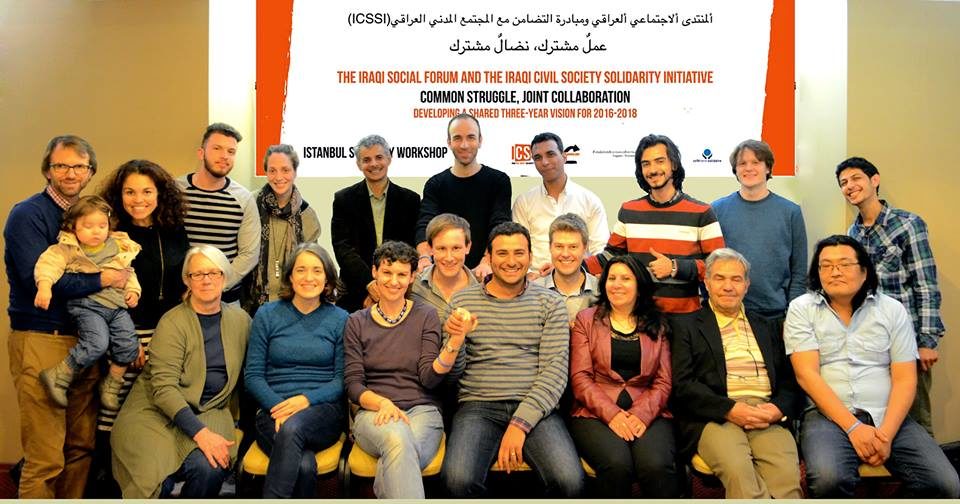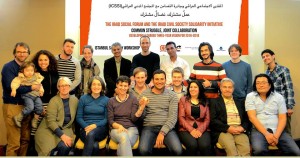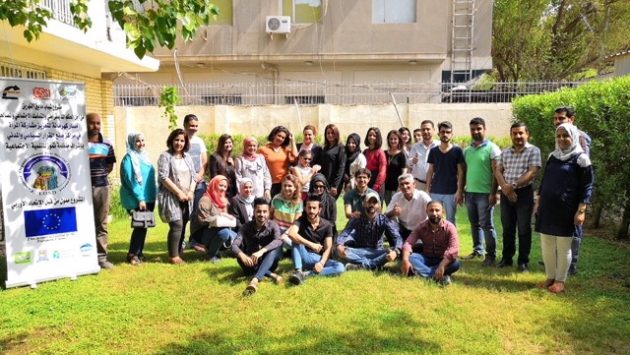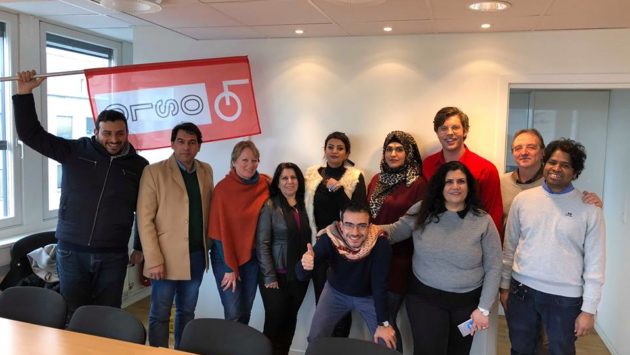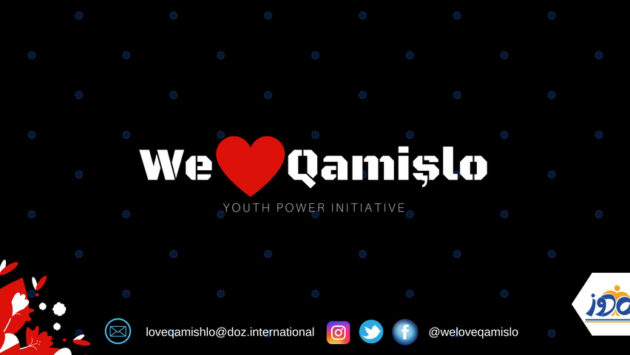Joint Strategy Workshop: Iraqi Social Forum and Iraqi Civil Society Solidarity Initiative
11 to 14 February 2016 – Istanbul, Turkey
For four days, from February 11 to 14, 2016, members of the ISF [Iraqi Social Forum] and the ICSSI [Iraqi Civil Society Solidarity Initiative] met in Istanbul for a joint strategy planning workshop. These civil society activists – from Iraq, Italy, the Netherlands, Norway, the United States, Syria, Turkey and Catalonia – discussed the current situation in Iraq and analyzed the opportunities and challenges confronting the ISF and the ICSSI in the next three years.
After months of planning for the workshop, we immediately faced an obstacle when the Turkish government changed the visa requirements for Iraqis with no advance notification. Thanks to the Iraqi participants’ persistence, most of them were able to reach Istanbul only one day late. While awaiting their arrival, those already in Istanbul were able to have a briefing on the work of the Turkish CSO that hosted us, the Helsinki Citizens Assembly; to discuss in detail the important, recent victory of the Iraqi trade unions, which after ten years of struggle have won the approval of a labour code in line with international standards for the rights of workers (read the speech of Wesam Chasib); to reflect on the role of sports as a tool for reconciliation and peacebuilding; and to analyse the strengths and weaknesses of the ICSSI. In addition, we had an opportunity to learn about the experience and work of Dilibrin Khalil, a refugee now living in Turkey and who is an activist with the Union of Kurdish Students in Syria and Germany (see his remarks in a very inspiring separate paper).
On 12 February, six more participants from Baghdad joined the workshop (with three others participating via Skype) to engage in an open and wide-ranging analysis of the achievements of the ISF as well as the challenges the ISF has encountered. Many of Iraq’s current problems have a huge impact on the work of the ISF, including: the security situation and the financial crisis, government corruption, insufficient space for civil society and the crackdown on freedom of expression, limitations on women playing pubic roles, and the breakdown between youth and the rest of society. Discussion then shifted to the importance of peacebuilding and how the ISF can work to mobilize women and youth.
Members of the ICSSI next reviewed the on-going campaigns they are working on and together with the Iraqis and internationals discussed the opportunities for collaboration and solidarity. While acknowledging the need to continue to expand the programmatic work of the ISF and to grow its human resources, everyone agreed that the ISF had developed a highly committed group of volunteers who were making the Forum a force for positive change in Iraq, particularly: by maintaining the space for civil society, debate and non-violent protest, reaching out to new organizations in more governorates, increasing the participation of unions, and valuing the participation and engagement of women and youth.
The morning of the next day, 13 February, was spent in detailed analysis of the current situation in Iraq, and then conducting a “SWOT” Analysis of the ISF (in which workshop participants collectively assessed the strengths and weaknesses that are internal to the Forum, and the opportunities and threats presented by the external environment).
In the afternoon, workshop participants began the process of plotting a Theory of Change for the ISF’s next three years of work, which members of the ISF have agreed will focus on Peacebuilding. Step One, was to envision the concrete changes that people would like to see in Iraq; the list was long![i] Most important was greater peace and security; ending sectarian identity and divisions, more involvement of youth and women in civil society, economic reforms that help stabilize the country, and environmentally-conscious development.
Building upon these hopes, workshop participants then brainstormed together about specific goals that would help to bring about the transformations they had envisioned. The outcome of the visioning and brainstorming session was the identification of four substantial goals that will set the agenda for the work of the ISF over the next three years.
- IRAQI SOCIAL FORUM: to enhance and strengthen the structure of the ISF and expand the variety of its member organizations and participants as a means to empower civil society and promote freedom of association.
- PEACEBUILDING: to enhance the process of building civil peace and citizenship without discrimination by religion or ethnicity. Specifically:
- Enhancing the national identity
- Ending the confessional (quota) system
- Putting in place systems of transitional justice
- Ensuring that weapons are properly controlled by the government
As a means to encourage the return of refugees and IDPs to their communities of origin and to discourage responses of violence and revenge.
- ECONOMIC RIGHTS
- Support trade unions as they work to ensure full and effective implementation of the new Labour Law and secure the passage of a law guaranteeing freedom of association for unions
- Evolve social and economic policies, especially a draft Social Security Law and policies to reduce poverty
- Defend the right to quality, public education
- Promote social justice
- SAVE THE TIGRIS AND THE IRAQI MARSHES
- Build a strong network to effectively promote good policies to protect Iraqi rivers and the Iraqi Marshes
- Support sustainable development of the Iraqi environment
As a means to encourage the protection of Iraq’s precious natural and environmental heritage that are vital to the Iraqi national identity.
- to spread the intrinsic value of sports, related to its capacity to support and educate the individual
- promote civil growth and peaceful coexistence among different peoples, cultures, and ethnicities
- reclaim public spaces for the use of all citizens
As a means to encourage active citizenship, human rights and freedom in Iraq.
February 14, the final day of the workshop focused on concrete planning in terms of budgeting and schedule. We reviewed the funding that is currently available for ISF and ICSSI work. Finally, together the participants built a calendar for their campaigns and activities for the next three years. Overall, it has been an incredibly inspiring meeting that sets the pace for future joint work of the international and Iraqi civil society. Another Iraqi is possible and the Iraqi Social Forum is working to make change happen!
______________
[i] VISION FOR CHANGE IN IRAQ:
- Political reform – increased awareness, citizen education
- Increased awareness of the importance of civil society and promotion of a more effective civil society
- Anti-corruption movement develops; protest movements increase
- Renew social contract between society and government
- Create positive social and cultural relations among all citizens
- Empower women
- Empower youth
- Economic reform more local production, refocus on industry, rebuild infrastructure
- Defense of the right of education as a part of social justice
- Job security
- Oppose sale of government property
- Develop Iraqi national identity
- Greater daily security in Iraq
- “End terrorism,” liberate areas from Daesh control – Mosul, Hawijah, etc.
- Reduce military presence
- Limit weapons in the hands of non-state actors; return to a national army
- Deal with and reduce sectarian mobilization in society
- Return of some refugees to Iraq – esp. minorities
- Return of IDPs to liberated areas
- Reduce the impacts of displacement of people
- End outward migration
- Iraq does not go through another cycle of revenge as Daesh leaves areas it controls
- Growth of environmental awareness – water will be understood as a right and an instrument of peace; it will not divide Iraq and KRI
- Water becomes a factor for national identity
- Saving the Marshes
- Increase tourism sector; increased heritage tourism
- Increased free and independent media
- Right to obtain information and greater freedom of expression

